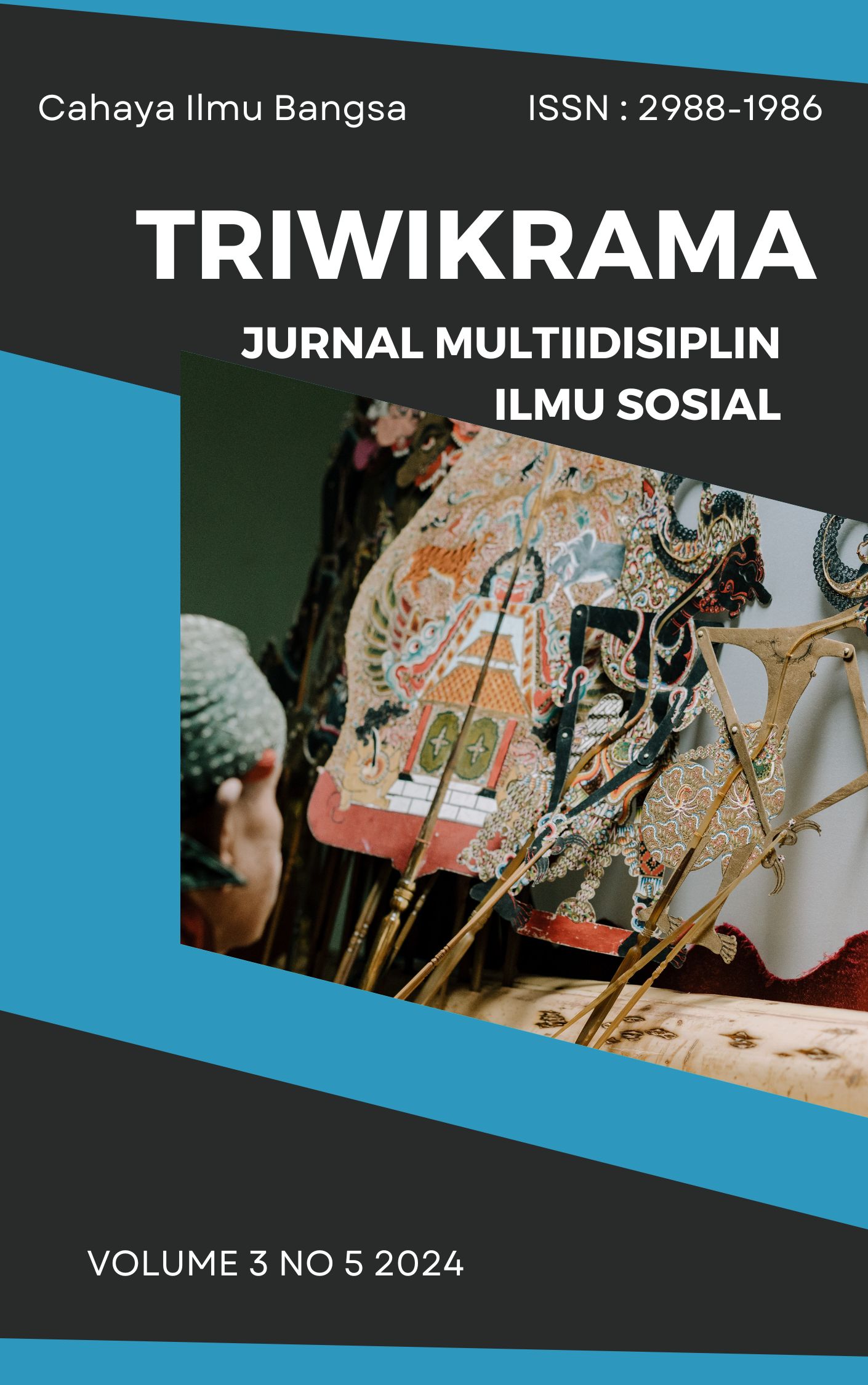REDEFINISI KEDAULATAN DI ERA DIGITAL: KEAMANAN SIBER,TATA KELOLA DATA, DAN OTONOMI REGIONAL DI ASIA TENGGARA
DOI:
https://doi.org/10.9963/5e2w9307Keywords:
Kedaulatan Digital, Keamanan Siber, Tata Kelola Data, Otonomi Regional, Asia Tenggara , Digital Sovereignty, Cybersecurity, Regional Autonomy, Southeast AsiaAbstract
Era digital telah membawa perubahan signifikan terhadap konsep kedaulatan konvensional, di mana batasan geografis tidak lagi menjadi penghalang bagi aliran informasi dan data. Kedaulatan digital muncul sebagai respons terhadap tantangan ini, menekankan pentingnya penguasaan data, infrastruktur teknologi, dan keamanan siber. Di kawasan Asia Tenggara, tantangan ini semakin kompleks akibat disparitas kapasitas teknologi dan regulasi di antara negara-negara anggotanya, serta ketergantungan yang tinggi pada perusahaan teknologi asing. Ancaman dari serangan siber dan manipulasi informasi juga semakin meningkat, yang dapat merusak stabilitas politik dan sosial. Meskipun ASEAN telah meluncurkan beberapa inisiatif untuk membangun kerangka kerja digital yang terkoordinasi, implementasinya masih menghadapi banyak hambatan, termasuk perbedaan kepentingan politik dan kapasitas teknis antarnegara. Oleh karena itu, diperlukan upaya nyata untuk meningkatkan kapasitas digital, harmonisasi regulasi, dan edukasi masyarakat tentang kedaulatan digital. Dengan pendekatan kolaboratif dan komprehensif, kedaulatan digital dapat menjadi agenda bersama yang menjamin masa depan kawasan Asia Tenggara di era digital.
The digital era has brought significant changes to the conventional concept of sovereignty, where geographical boundaries are no longer a barrier to the flow of information and data. Digital sovereignty has emerged as a response to these challenges, emphasizing the importance of data control, technological infrastructure, and cybersecurity. In Southeast Asia, these challenges are further complicated by disparities in technological capacity and regulation among member countries, as well as a high dependence on foreign technology companies. The threats from cyberattacks and information manipulation are also increasing, potentially undermining political and social stability. Although ASEAN has launched several initiatives to establish a coordinated digital governance framework, implementation still faces numerous obstacles, including differing political interests and technical capacities among countries. Therefore, there is a pressing need for concrete efforts to enhance digital capacity, harmonize regulations, and educate the public about digital sovereignty. With a collaborative and comprehensive approach, digital sovereignty can become a shared agenda that ensures the future of Southeast Asia in the digital era.
References
Burri, M. (2017). The regulation of data flows through trade agreements. Georgetown Journal of International Law, 48, 407-448.
Google, Temasek, & Bain. (2021). e-Conomy SEA 2021: Roaring 20s - The SEA Digital Decade. Google.
Krasner, S. D. (1999). Sovereignty: Organized hypocrisy. Princeton: Princeton University Press.
Mueller, M. L. (2010). Networks and states: The global politics of Internet governance. Cambridge, MA: MIT Press.
Osiander, A. (2001). Sovereignty, international relations, and the Westphalian myth. International Organization, 55(2), 251-287.
Pohle, J., & Thiel, T. (2020). Digital Sovereignty. Internet Policy Review, 9(4). https://doi.org/10.14763/2020.4.1532
Tan, S. S. (2020). Consigned to hedge: South-east Asia and America's 'free and open Indo-Pacific' strategy. International Affairs, 96(1), 131-148.
Zuboff, S. (2019). The age of surveillance capitalism: The fight for a human future at the new frontier of power. New York: Public Affairs.
Fratini, S., Hine, E., Novelli, C., Roberts, H., & Floridi, L. (2024). Digital Sovereignty: A descriptive analysis and a critical evaluation of existing models. Digital Society, 3(3). https://doi.org/10.1007/s44206-024-00146-7
Economic and Political Weekly. (2024, December 27). Technological Sovereignty. Economic and Political Weekly, 52. https://www.epw.in/journal/2024/52/strategic-affairs/technological-sovereignty.html
von Scherenberg, F., Hellmeier, M., & Otto, B. (2024). Data Sovereignty in Information Systems. Electronic Markets, 34(1). https://doi.org/10.1007/s12525-024-00693-4
Reyes-García, V., Tofighi-Niaki, A., Austin, B. J., Benyei, P., Danielsen, F., Fernández-Llamazares, Á., Sharma, A., Soleymani-Fard, R., & Tengö, M. (2022). Data Sovereignty in community-based environmental monitoring: Toward Equitable Environmental Data Governance. BioScience, 72(8), 714–717. https://doi.org/10.1093/biosci/biac048
March, C., & Schieferdecker, I. (2023). Technological sovereignty as ability, not autarky. International Studies Review, 25(2). https://doi.org/10.1093/isr/viad012
Timmers, P. (2023). Sovereignty in the Digital age. Introduction to Digital Humanism, 571–592. https://doi.org/10.1007/978-3-031-45304-5_36
Glasze, G., Cattaruzza, A., Douzet, F., Dammann, F., Bertran, M.-G., Bômont, C., Braun, M., Danet, D., Desforges, A., Géry, A., Grumbach, S., Hummel, P., Limonier, K., Münßinger, M., Nicolai, F., Pétiniaud, L., Winkler, J., & Zanin, C. (2022). Contested spatialities of Digital Sovereignty. Geopolitics, 28(2), 919–958. https://doi.org/10.1080/14650045.2022.2050070
Hema Nadarajah, A. I. (n.d.). Indonesian government under fire for string of cyber breaches. Asia Pacific Foundation of Canada. https://www.asiapacific.ca/publication/indonesian-government-under-fire-after-cyber-breaches
Bank Info Security Asia. (2023). Indonesia hardest hit by cyberattacks in the region. Bank Info Security.
Badan Siber dan Sandi Negara. (2024). Laporan Tahunan Keamanan Siber Indonesia 2024. Jakarta: BSSN.
IndoSec Summit. (2025). The escalating cyber threat in Indonesia: A wake-up call for digital security. IndoSec Summit Report.
Institute of Southeast Asian Studies. (2021). Digital sovereignty viewed from Asia. Directions Blog.
Security Today. (2024). World's critical infrastructure suffered 13 cyber attacks every second in 2023. Security Today.
SOCRadar Cyber Intelligence. (2024). Indonesia threat landscape report 2024. SOCRadar Cyber Intelligence.
Gu, Hongfei. (2023). Data, Big Tech, and the New Concept of Sovereignty. Journal of Chinese Political Science. 29. 10.1007/s11366-023-09855-1.
AJCCBC. (2023). Cybersecurity Capacity Building in ASEAN: Regional Review. ASEAN-Japan Cybersecurity Capacity Building Centre.
ASEAN Secretariat. (2021). ASEAN Digital Masterplan 2025. https://asean.org/book/asean-digital-masterplan-2025/
de Hert, P., & Papakonstantinou, V. (2012). The proposed data protection Regulation replacing Directive 95/46/EC: A sound system for the protection of individuals. Computer Law & Security Review, 28(2), 130–142.
Morozov, E. (2014). To Save Everything, Click Here: The Folly of Technological Solutionism. PublicAffairs.
Downloads
Published
Issue
Section
License

This work is licensed under a Creative Commons Attribution-NonCommercial-ShareAlike 4.0 International License.










